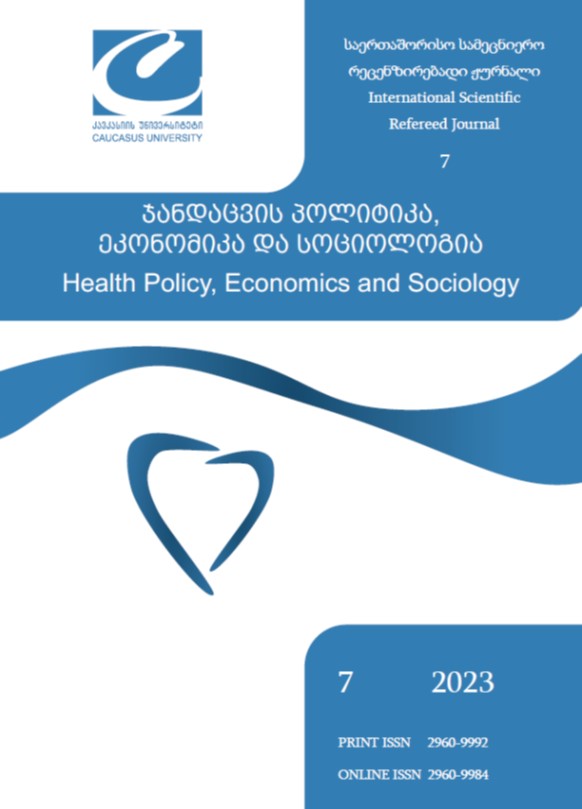საცხოვრებელი ადგილის და საზოგადოების როლი ადამიანის კეთილდღეობაში
საკვანძო სიტყვები:
ცხოვრების ხარისხი., საცხოვრებელი გარემო, კეთილდღეობაანოტაცია
საცხოვრებელი ადგილი, საზოგადოება გავლენას ახდენს ადამიანის კეთილდღეობაზე. კეთილდღეობა, რომელიც მრავალგანზომილებიანი კონსტრუქციაა, მოიცავს ისეთ ურთიერთდაკავშირებულ კომპონენტებს, როგორებიცაა: ჯანმრთელობა, სოციალური ურთიერთობები, შემოსავალი, სამუშაო. პიროვნული მახასიათებლები, კულტურული ფასეულობები, ეკონომიკური, სოციალური და პოლიტიკური გარემო. ცუდი ჯანმრთელობა, მარტოობის შეგრძნება, სოციალური ურთიერთობების ნაკლებობა და უმუშევრობა უარყოფითად მოქმედებს კეთილდღეობაზე. გარემოსთან დაკავშირებული კეთილდღეობის ანალიზი და კეთილდღეობაზე მოქმედი ფაქტორების გაცნობიერება გადამწყვეტია სასიცოცხლო გარემოს შესაქმნელად და სოციალური მდგრადობის მისაღწევად.
წყაროები
Veenhoven R. (1999). Quality-of-life in individualistic society – A comparison of 43 nations in the early 1990's. Social Indicators Research, 48, 157–186.
Máhr T, Birkner Z, Berkesné RN. (2018). Soundness and sustainability research in the regional and settlement development programmes (2014-2020). Interdisciplinary Description of Complex Systems, 16(2), 289-301.
ჩამოტვირთვები
გამოქვეყნებული
როგორ უნდა ციტირება
გამოცემა
სექცია
ლიცენზია
საავტორო უფლებები (c) 2023 თამარ პაპიაშვილი, ლიკა გაბუნია

ეს ნამუშევარი ლიცენზირებულია Creative Commons Attribution-ShareAlike 4.0 საერთაშორისო ლიცენზიით .













